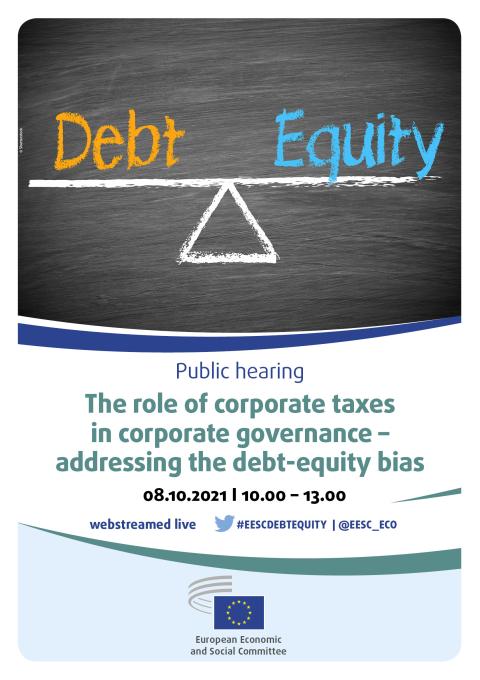European Economic
and Social Committee
The role of corporate taxes in corporate governance - addressing the debt-equity bias
In order to reshape the European economy and in line with the objectives stated by the European Commission for a more sustainable, greener and digitalised economy, investments must support environmental goals and remove obstacles to corporate dividend policymaking and payments. Among many other factors, the debt-equity bias in the corporate tax systems affects both the leverage of firms and corporate governance. The EESC welcomes the recent public consultation on a new initiative to mitigate the debt-equity bias in corporate taxation launched by the European Commission and shares the Commission's view that companies should contribute to the achievement of a greener, sustainable and digitalised economy.
The EESC aspires to contribute to the ongoing public debate by analysing core elements of the debt-equity bias with civil society stakeholders, and in particular the following aspects:
- The effects of the debt-equity bias in corporate taxation
- Economic and social costs of the debt-equity bias - bankruptcy and job losses
- Ways of reducing the bias - how do we provide equal treatment for SMEs and MNEs?
- The importance of dividends being paid and put to the market test – how to find the right balance?
For this purpose the EESC will hold an online public hearing ‘’The role of corporate taxes in corporate governance - addressing the debt-equity bias" on 8 October 2021.
The event will take place online and will be web-streamed live on the EESC website. No registration is needed, and participation is free of charge.
External participants can ask questions via the Q&A and polling platform Sli.do: Ask your question
Follow us Twitter: #EESCDEBTEQUITY | @EESC_ECO
